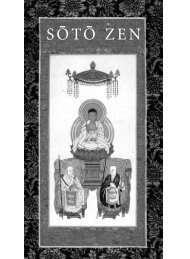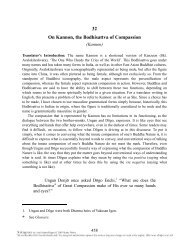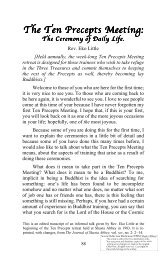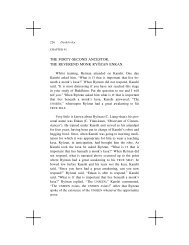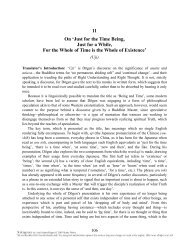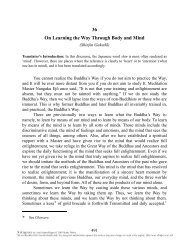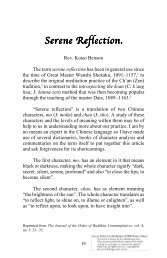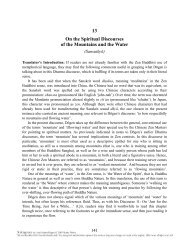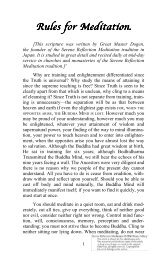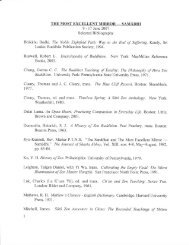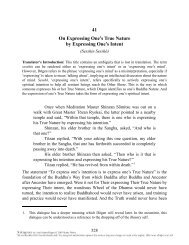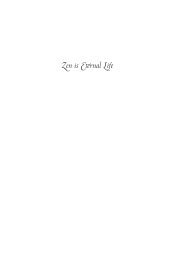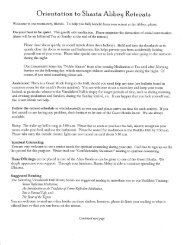Mujo Seppo - thezensite
Mujo Seppo - thezensite
Mujo Seppo - thezensite
You also want an ePaper? Increase the reach of your titles
YUMPU automatically turns print PDFs into web optimized ePapers that Google loves.
Shōbōgenzō: On the Dharma That Nonsentient Beings Express 665<br />
nonsentient, nonsentient beings express the Dharma, which is a traditional<br />
Teaching. It is for the sake of the nonsentient that the nonsentient give voice to the<br />
Dharma. What is it that we call ‘the nonsentient’? You need to know that it is the<br />
one who hears the Dharma that the Nonsentient expresses. And what is it that we<br />
call ‘expressing the Dharma’? You need to know that it is that which does not<br />
know ‘I am nonsentient’.<br />
❀<br />
Great Master Tōsu Daidō in Shuchou Province 8 was once asked<br />
by a monk, “Just what is this ‘nonsentient beings express the Dharma’<br />
stuff all about?”<br />
The Master responded, “Do not bad-mouth it.”<br />
What Tōsu is asserting here now is the very practice of the Dharma of an Old<br />
Buddha and it is the governing principle in our Ancestral tradition. Generally<br />
speaking, such statements as “Nonsentient beings express the Dharma,” and<br />
“Expounding the Dharma is what a nonsentient being is,” are instances of not badmouthing<br />
it. Keep in mind that the expounding of the Dharma by the nonsentient is<br />
precisely what the defining attribute of an Ancestor of the Buddha is. That bunch<br />
who have followed Rinzai and Tokusan don’t know about it; only our Ancestors of<br />
the Buddha have explored it thoroughly through their training.<br />
Given to the assembly at Kippō-ji Temple in the Yoshida district of Echizen Province on the<br />
second day of the tenth lunar month in the first year of the Kangen era (November 15,<br />
1243).<br />
Copied here on the fifteenth day of the tenth lunar month in the same year (November 28, 1243).<br />
Ejō<br />
8. There is an interpolation in the text at this point, whose authorship is uncertain. It reads: He<br />
was Dharma heir to Suibi Mugaku; in his lifetime he was called Daidō Myōkaku, as well as<br />
the Old Buddha Tōsu.



